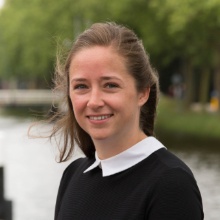Contact
Delft University of Technology
The Netherlands
Subject
Application of unstructured multi-level grid to thermal-reactive flow and transport in porous media
Denis Voskov (Delft University of Technology)
Rainer Helmig (University of Stuttgart)
1st November 2018 - 30th April 2019
A coupled description of flow and thermal-reactive transport is spanning a wide range of scales in space and time. The subsurface reservoir heterogeneity with complex multi-scale features increases the complexity further. Traditional Algebraic Multiscale technique is focused on pressure solution and often ignores the transport solution. However, in complex applications related to chemical and compositional EOR, reservoir storage and geothermal industry, the number of conserved chemical species can be large which makes any improvement in transport solution quite significant for the performance and robustness of the simulation process.
In this project, we will develop an unstructured multi-level gridding framework for general purpose reservoir simulation. In particular, we will focus on thermal-reactive flow and transport formulation which is required for a wide range of subsurface applications. First, we will construct a fine-scale model accurately approximating all reservoir heterogeneity. This model will be represented by a list of volumes, depths, and connectivity list [1]. Next, we will apply a global flow-based upscaling and construct an unstructured partitioning of the original grid as suggested in [2]. This partitioning will provide coarser levels of the original model each of which is also described by a list of volumes, depths, and connectivity list. A coarser connectivity list will include connections between control-volumes at the given level as well as interconnections between the levels.
Once the full hierarchy of levels is constructed, the simulation will start with the coarsest grid. Grid space refinement criterion will be developed for particular applications. The multi-level connection list will be reconstructed at each timestep and used for the simulation. The proposed approach will be implemented in Delft Advanced Research Terra Simulator (DARTS) which is based on Operator-Based Linearization technique [3]. The DARTS framework is implemented using Python front-end, controlling the simulation parameters between timesteps (e.g. well management and timestep controls) and C++ (or CUDA) back-end performing the timestep solution based on specific nonlinear solver (e.g. Newton-based). The main modification of the existed code will be performed at the front-end level using Python. The approach will be tested on several applications of practical interests.
The first target application in this project will be reservoir scaling associated with low enthalpy geothermal energy extraction. We will learn how the scaling process in near-wellbore and between the wells affects the fluid distribution and cold water recharging which is the most uncertain characteristics of this process [4]. The second target application will be subsurface hydrogen storage. Hydrogen is known as very reactive component and can activate different chemical reactions with the in-situ fluids and rocks which potentially affect the dynamic and safety of storage.
[1] Lim, K.-T. (1995, July 1). A New Approach for Residual and Jacobian Arrays Construction in Reservoir Simulators. Society of Petroleum Engineers. doi:10.2118/28248-PA
[2] Karimi-Fard, M., Durlofsky, L.J. Unstructured adaptive mesh refinement for flow in heterogeneous porous media (2014) 14th European Conference on the Mathematics of Oil Recovery 2014, ECMOR 2014, art. no. A21
[3] Voskov, D. V. (2017). Operator-based linearization approach for modeling of multiphase multi-component flow in porous media. Journal of Computational Physics, 337:275–288.
[4] Shetty S., D. Voskov, and D. Bruhn, 2018. Numerical Strategy for Uncertainty Quantification in Low Enthalpy Geothermal Project, Proceedings 43rd Workshop on Geothermal Reservoir Engineering, Stanford University, Stanford, California, SGP-TR-213.


